Sierra Leone at a Glance
Sierra Leone packs incredible diversity into its modest size. From the bustling streets of Freetown to the tranquil shores of River Number Two Beach, this West African nation offers experiences that range from wildlife encounters to cultural immersion. Despite its troubled past, Sierra Leone has emerged as a peaceful country with resilient, welcoming people eager to share their beautiful homeland with visitors.
Quick Facts: Sierra Leone is located in West Africa, bordered by Guinea and Liberia. The official language is English, though Krio (a creole language) is widely spoken. The currency is the Leone (SLL), and the country operates on GMT time zone.
Planning Your Journey to Sierra Leone
Traveling to Sierra Leone requires some preparation, but the rewards are well worth it. Here’s what you need to know before embarking on your adventure.
When to Visit Sierra Leone
Sierra Leone has two distinct seasons: the dry season (November to April) and the rainy season (May to October). The best time to visit is during the dry season when roads are more accessible and outdoor activities are not interrupted by downpours. January and February are particularly hot, with temperatures reaching the mid-30s°C (95°F).
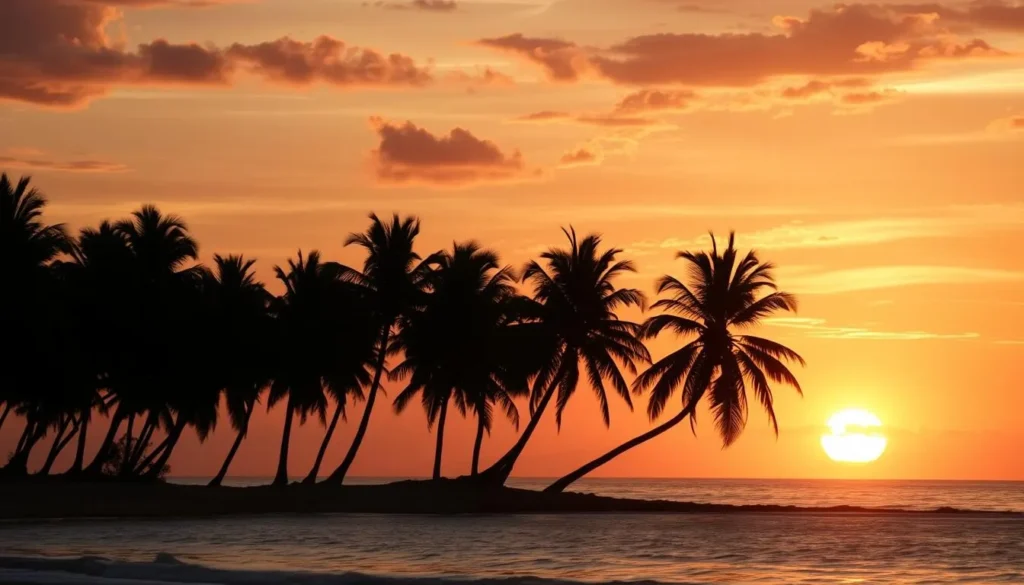
Getting to Sierra Leone
Lungi International Airport (FNA) near Freetown is Sierra Leone’s main gateway. Several international airlines offer flights to Freetown, though you may need to connect through major European or African hubs. Upon arrival, you’ll need to cross the Sierra Leone River to reach Freetown, either by ferry, water taxi, or the longer road route.
Visa Requirements
Most visitors require a visa to enter Sierra Leone. You can obtain an electronic visa in advance through the official government portal or get a visa on arrival for approximately $80 USD (cash only). Your passport must be valid for at least six months beyond your planned departure date, and you’ll need to show proof of yellow fever vaccination.
Health and Safety
Visit your doctor 4-6 weeks before traveling to get necessary vaccinations, including yellow fever (required), typhoid, hepatitis A, and potentially others depending on your activities. Malaria is present throughout Sierra Leone, so antimalarial medication is essential. While the country has been peaceful since the end of the civil war in 2002, take standard precautions against petty crime, especially in urban areas.
Getting Around Sierra Leone
Transportation in Sierra Leone can be an adventure in itself. Here are your options for navigating this diverse country:
Local Transport
In Freetown, poda-podas (minibuses), taxis, and keke (tuk-tuks) are common. Poda-podas are the cheapest option but can be crowded. Taxis are more comfortable but negotiate the fare before getting in. For a fun experience, take a keke tour of Freetown to see the main sights.
Intercity Travel
For longer journeys between cities, you can hire a private car with driver, take shared taxis, or use buses. Road conditions vary significantly, with many unpaved roads outside major routes. During the rainy season, some areas may become difficult to access.
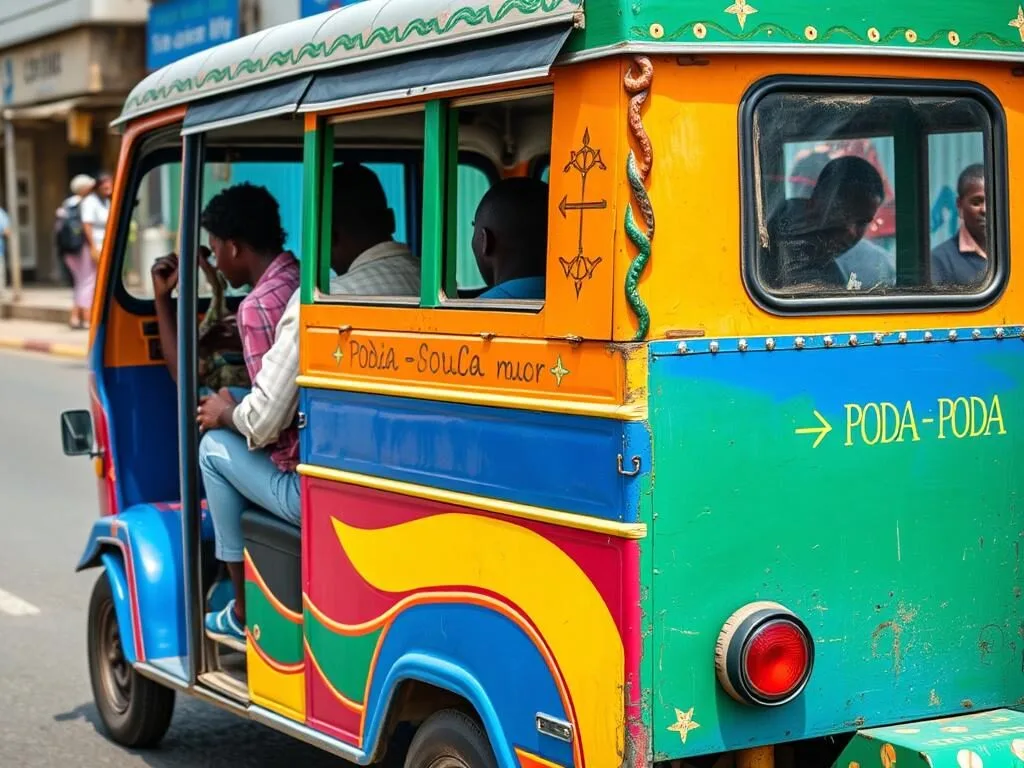
Where to Stay in Sierra Leone
Accommodation options in Sierra Leone range from international hotels to eco-lodges and guesthouses. While luxury options are limited, you’ll find comfortable places to stay, particularly in Freetown and beach areas.
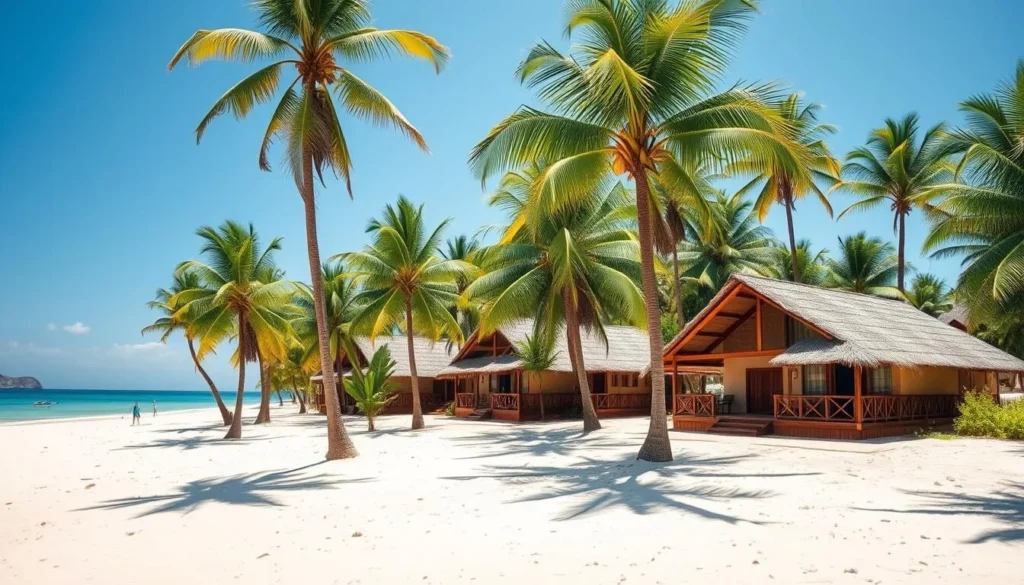
Freetown Accommodations
The capital offers the widest range of accommodations, from business hotels to guesthouses. Popular options include Radisson Blu Mammy Yoko Hotel, Bintumani Hotel, and smaller establishments like Stafford Lodge, which offers a more personal experience.
Beach Resorts
The Freetown Peninsula boasts several beach accommodations. Tokeh Beach has The Place Resort and Tokeh Beach Sands, while River Number Two Beach offers community-run guesthouses. For a more remote experience, consider staying at Dalton’s Banana Island Guesthouse.
Eco-Lodges and Wildlife Sanctuaries
Tacugama Chimpanzee Sanctuary offers eco-lodges where you can stay overnight surrounded by forest. Tiwai Island Wildlife Sanctuary provides basic tent accommodations for an immersive nature experience.
Sierra Leone: Best Things to Do – Top Picks
From wildlife encounters to historical sites and pristine beaches, Sierra Leone offers diverse experiences for travelers. Here are the must-do activities for your visit:
1. Visit Tacugama Chimpanzee Sanctuary
Just 25 minutes from Freetown, Tacugama Chimpanzee Sanctuary is one of Sierra Leone’s most important conservation projects. Founded in 1995, the sanctuary rescues and rehabilitates orphaned and injured chimpanzees, housing them in a multi-acre forest habitat.
During your visit, knowledgeable guides will lead you through the sanctuary, explaining the rehabilitation process and the challenges facing wild chimpanzee populations. You’ll observe these fascinating primates in various enclosures designed to mimic their natural environment, from “kindergarten” areas for younger chimps to expansive forest habitats for rehabilitated adults.
For a truly special experience, book an overnight stay in one of Tacugama’s eco-lodges, where you can fall asleep to the sounds of the forest and wake up to chimpanzees calling in the distance.
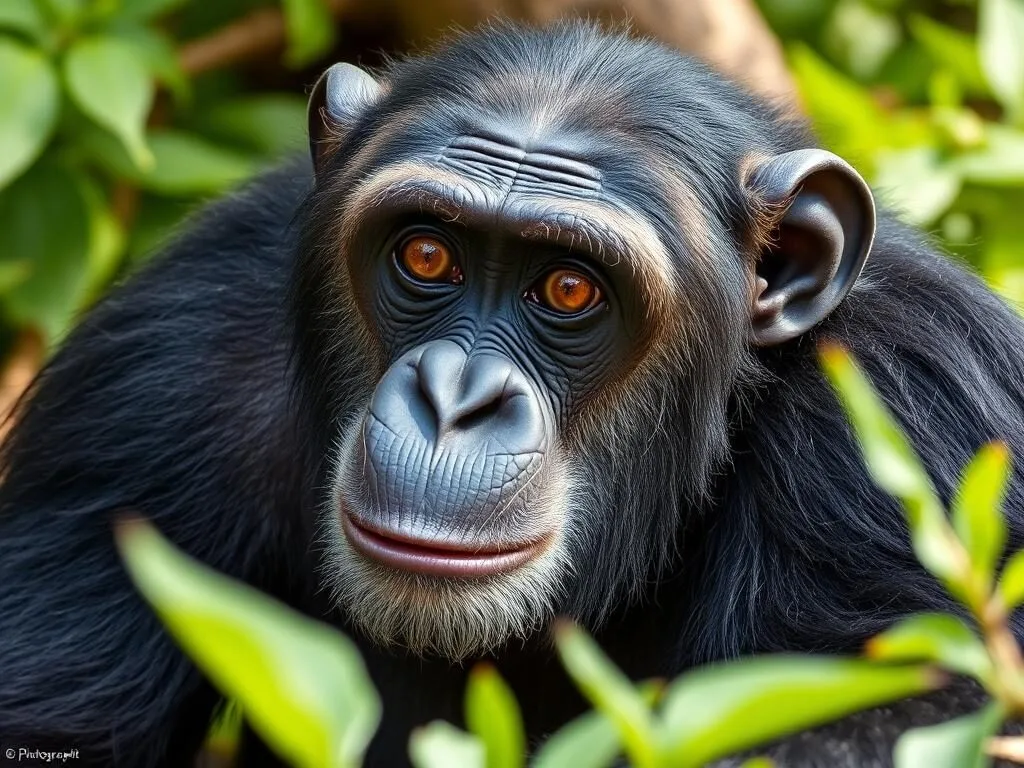
2. Explore Bunce Island’s Haunting History
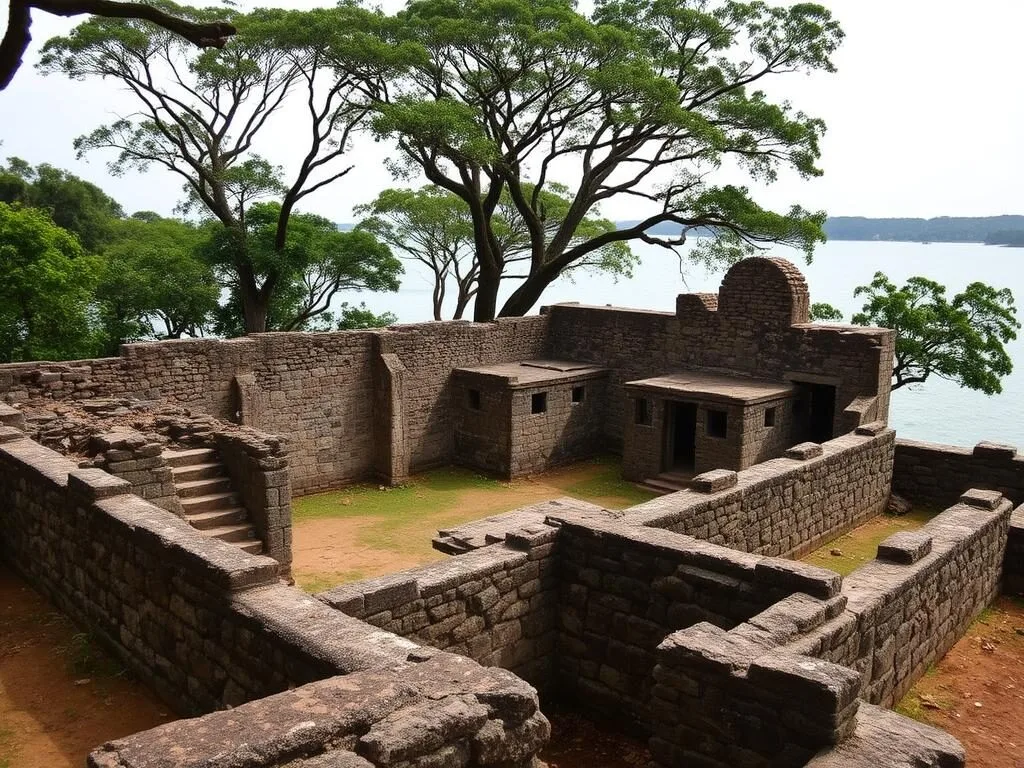
Located 20 miles upriver from Freetown, Bunce Island stands as a powerful reminder of the transatlantic slave trade. From the 17th to 19th centuries, this British slave castle was a major departure point for enslaved Africans bound for America, particularly the rice-growing regions of South Carolina and Georgia.
A visit to Bunce Island is a moving experience that helps visitors understand this dark chapter of history. The ruins include the remains of the main fort, slave yards, and a small cemetery. For the most informative experience, hire a knowledgeable guide who can bring the island’s history to life through stories and historical context.
The boat journey to Bunce Island takes about an hour from Freetown, with tours typically lasting half a day. This is not just a tourist attraction but a place of remembrance and reflection.
3. Relax on River Number Two Beach
Made famous as the filming location for the classic “Taste of Paradise” Bounty chocolate commercials, River Number Two Beach lives up to its paradise reputation. Located on the Freetown Peninsula, this stunning beach features powder-white sand, crystal-clear turquoise water, and a backdrop of lush mountains.
What makes this beach special is its location at the mouth of a river, creating natural year-round sand bars and calm swimming conditions. The beach is managed by the local community, who maintain its pristine condition and offer services including fresh seafood at the beachside restaurant, boat trips up the river, and beach chair rentals.
Spend a day swimming in the gentle surf, walking along the expansive shoreline, or simply relaxing under the palm trees. For the best experience, arrive early in the morning when the beach is quietest and the light is perfect for photographs.
4. Discover Wildlife on Tiwai Island
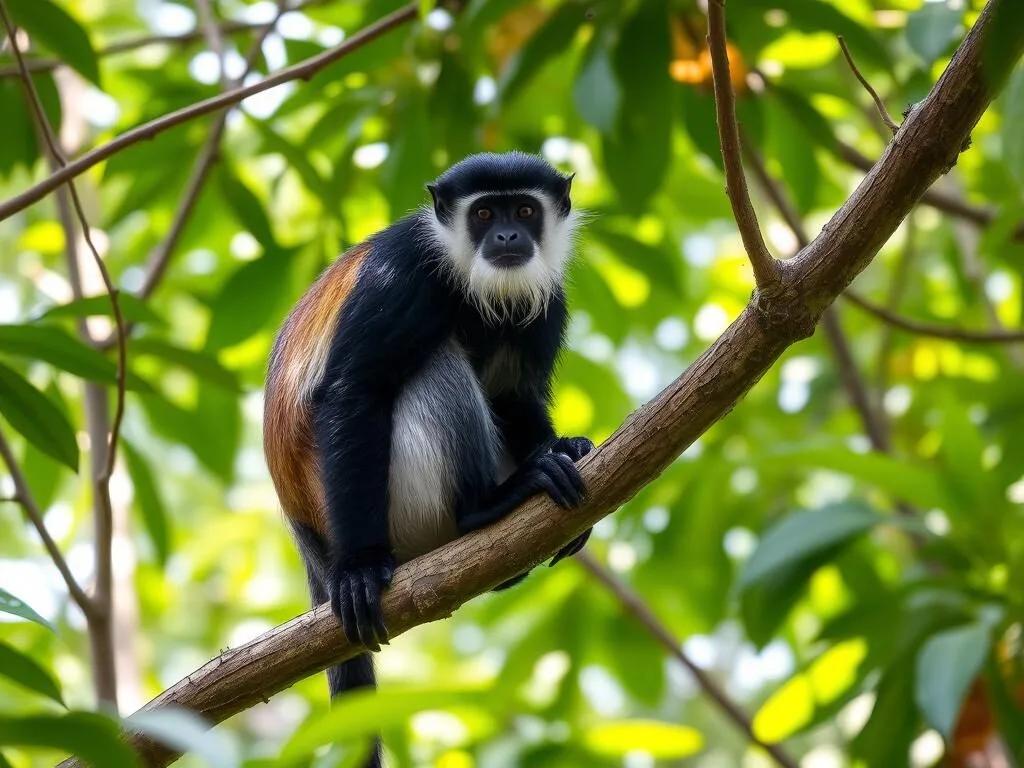
Tiwai Island Wildlife Sanctuary offers one of Africa’s most unique wildlife experiences. This 12-square-kilometer island in the Moa River boasts the highest concentration of primates in the world, with 11 different species including the rare pygmy hippopotamus, Diana monkeys, and western chimpanzees.
Accessible only by boat, Tiwai provides an immersive rainforest experience. Guided walks through the dense forest offer opportunities to spot colorful birds, butterflies, and primates, while night treks increase your chances of seeing nocturnal species like the elusive pygmy hippo.
Accommodation on the island is basic but atmospheric, with simple tented camps that allow you to fall asleep to the sounds of the forest. This community-run conservation project supports local villages while protecting this biodiversity hotspot.
5. Take a Freetown City Tour
Freetown, Sierra Leone’s vibrant capital, offers a fascinating blend of history, culture, and urban energy. A guided tour, particularly by ke-ke (tuk-tuk), provides an excellent introduction to the city’s highlights and hidden corners.
Key sites include the Cotton Tree, a historic symbol of freedom for returned slaves who founded Freetown; the Peace and Cultural Monument, which tells Sierra Leone’s story through carvings; and the Sierra Leone National Museum, housing cultural artifacts and historical exhibits.
Don’t miss the colorful Big Market (Freetown’s oldest bazaar) for crafts and souvenirs, the Maroon Church built from the wood of ships that brought freed slaves, and the Old Wharf Steps where those freed slaves first set foot in Sierra Leone. A city tour offers insights into both Sierra Leone’s complex history and its vibrant present.
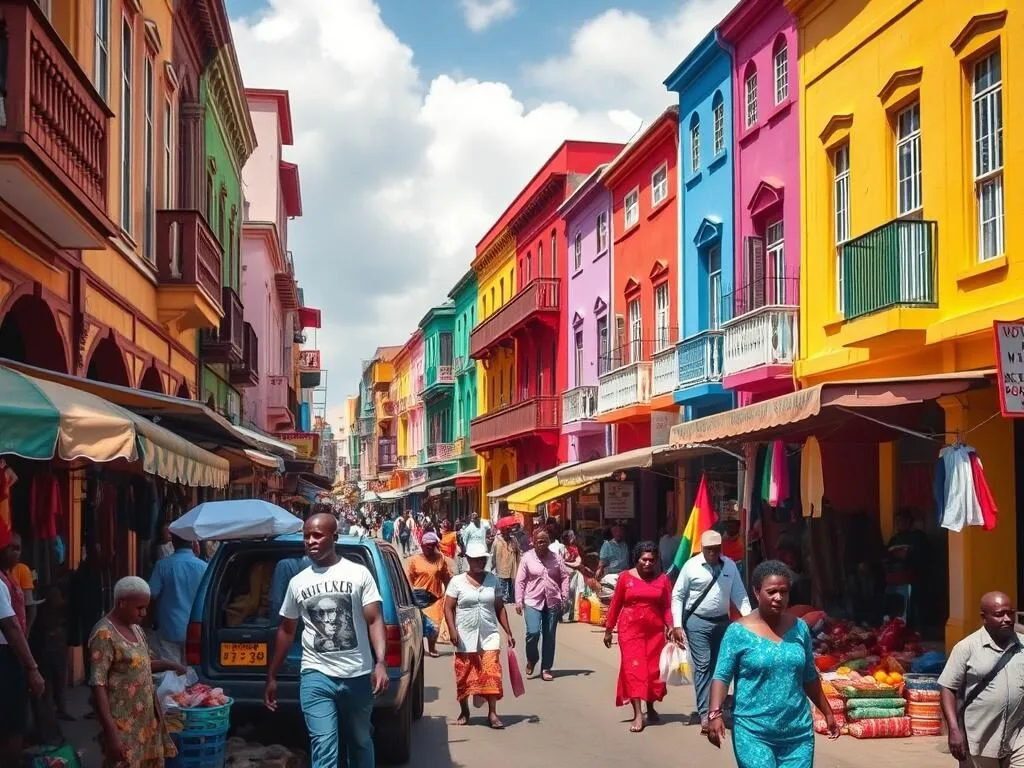
6. Experience Island Life on Banana Island
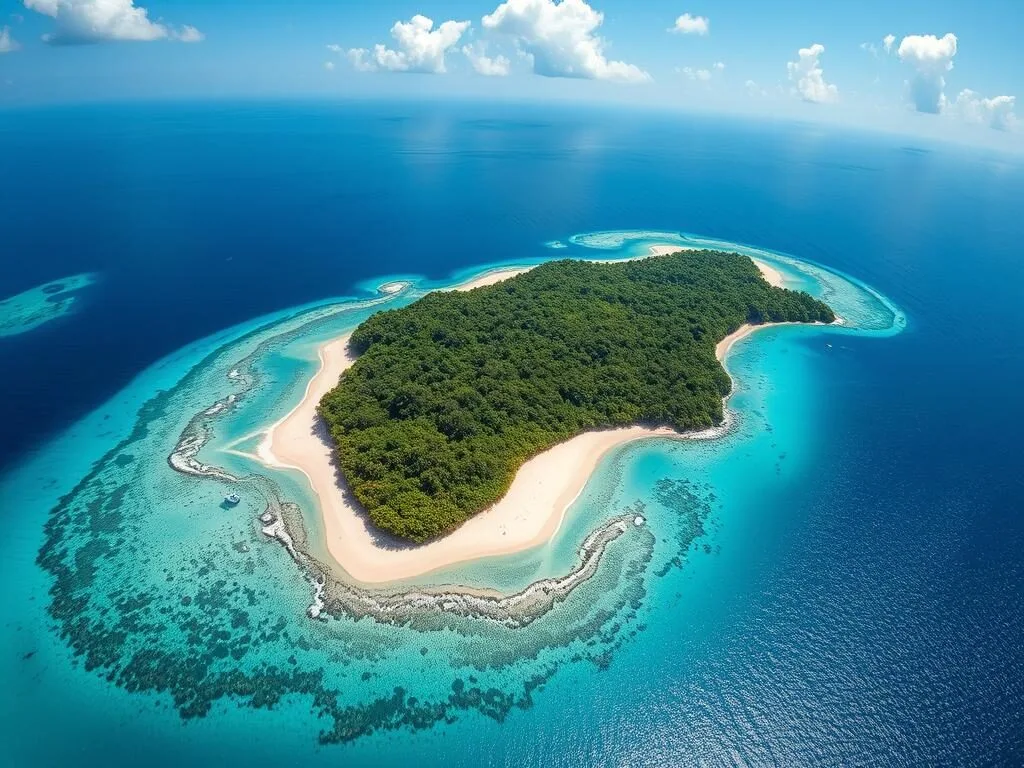
Just 25 miles from Freetown, Banana Island offers the perfect multi-day escape from the mainland. This small archipelago combines historical significance with natural beauty, creating an ideal spot for relaxation and exploration.
The island’s palm-fringed beaches provide excellent swimming and snorkeling opportunities, while diving enthusiasts can explore nearby colonial shipwrecks and vibrant reefs. Local fishermen can take you on fishing trips, and cultural tours reveal the island’s past connections to the slave trade.
Accommodation at Dalton’s Guesthouse is basic but comfortable, with fresh seafood meals prepared from the day’s catch. Spending at least one night on the island allows you to experience its peaceful rhythm and spectacular sunsets away from the bustle of Freetown.
7. Go on Safari in Outamba-Kilimi National Park
Sierra Leone’s oldest national park, Outamba-Kilimi, offers a unique West African safari experience. Covering two distinct areas separated by the Little Scarcies River, this park is home to Sierra Leone’s own “Big Five”: forest elephants, western chimpanzees, buffalo, hippos, and leopards.
Unlike East African safaris with vehicle game drives, exploration here happens on foot or by canoe, providing an intimate connection with the environment. Guided hikes lead you through diverse habitats where you might spot red colobus monkeys, over 300 bird species, and occasionally larger mammals.
The park headquarters offers simple accommodation, and advance arrangements are necessary as facilities are limited. While wildlife viewing requires patience, the authentic, uncrowded nature experience makes Outamba-Kilimi well worth the effort.
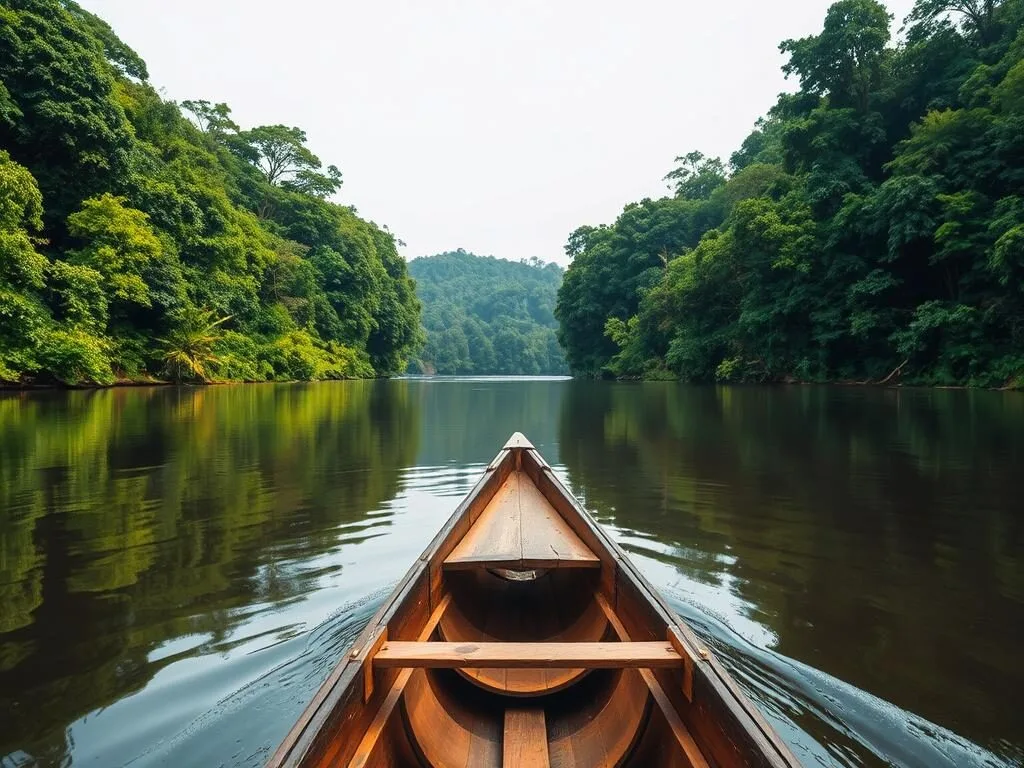
Taste Sierra Leone: Culinary Delights
Sierra Leonean cuisine offers a flavorful introduction to the country’s culture, blending local ingredients with influences from its history. Here are some dishes to try during your visit:
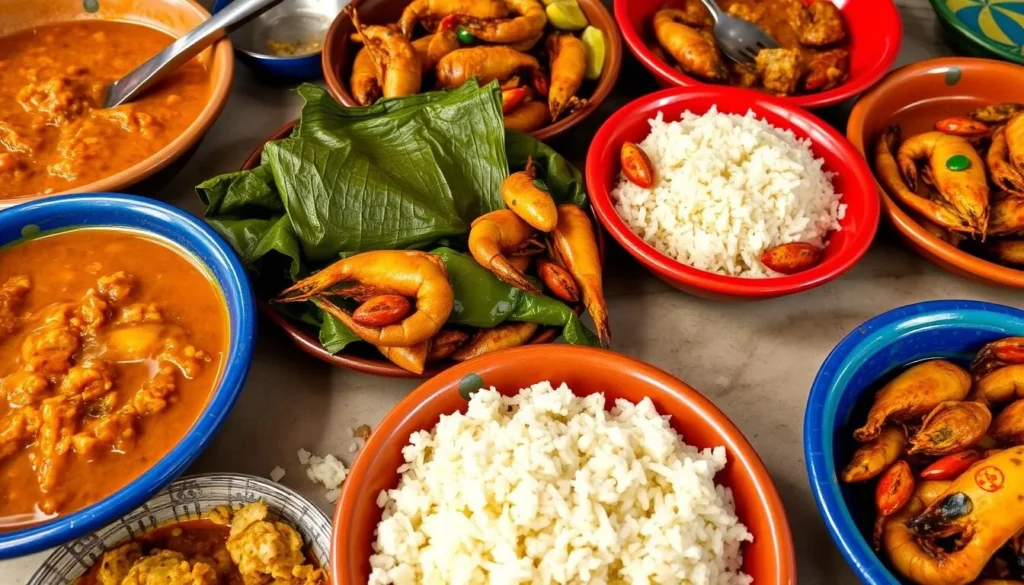
Cassava Leaf Stew
This national dish combines ground cassava leaves with palm oil, fish or meat, and hot peppers. Served over rice, it’s hearty, nutritious, and packed with flavor. The slow cooking process creates a rich, smooth texture that locals love.
Granat Soup
Also known as groundnut or peanut soup, this popular West African dish has a creamy, slightly spicy flavor similar to Thai panang curry. Typically made with chicken and served over rice, it’s comfort food at its finest.
Fresh Seafood
With its long coastline, Sierra Leone offers excellent seafood. Try grilled lobster kebabs, fresh fish, or barracuda carpaccio at beach restaurants like Franco’s on the Freetown Peninsula, where you can dine with your feet in the sand.
For the best dining experiences, visit local restaurants in Freetown like Way Li for traditional dishes, or beachside establishments for the freshest seafood. Be prepared to wait, as food is often cooked to order and chefs take their time to prepare dishes properly.
Practical Tips for Visiting Sierra Leone
Money Matters
Sierra Leone is primarily a cash-based society. The currency is the Leone (SLL), which underwent redenomination in 2022 (removing three zeros from the old currency). Bring US dollars to exchange, as ATMs are limited and often unreliable. Exchange some money at the airport for immediate needs, then use official exchange offices or ask your hotel to arrange currency exchange.
Communication
Purchase a local SIM card upon arrival for affordable data and calls. Africell and Orange are popular providers with good coverage in urban areas. Wi-Fi is available in most hotels in Freetown but may be limited or unavailable in remote areas.
Packing Essentials
- Mosquito repellent (DEET-free options like Incognito work well)
- Anti-diarrheal medication and rehydration salts
- Portable battery packs for electronics (power outages are common)
- Light, breathable clothing for hot weather
- Modest attire for visiting communities (shoulders covered)
- Good walking shoes and sandals
- Sunscreen and hat
- Hand sanitizer and wet wipes
“When the war ended, I had two choices. I could hold a grudge and never let it go, or I could forgive and choose peace.” – Local Sierra Leonean guide
Cultural Etiquette
Sierra Leoneans are generally warm and welcoming. Greet people with a handshake and a friendly “Kushe” (hello in Krio). Ask permission before taking photos of people, especially in rural areas. Dress modestly, particularly when visiting communities outside tourist areas. Be sensitive when discussing the civil war, as many people experienced personal trauma during this period.
Safety Considerations
Sierra Leone is generally peaceful, but take standard precautions against petty crime. Avoid displaying valuable items, particularly in crowded areas. Use reputable transportation companies and avoid traveling at night outside cities. Be aware that driving standards can be poor, and always ensure your driver is alert and sober before getting into any vehicle.
Ready for Your Sierra Leone Adventure?
Sierra Leone offers intrepid travelers a rare opportunity to experience West Africa at its most authentic. From the moment you step off the plane, you’ll be embraced by the country’s natural beauty, rich cultural heritage, and the genuine warmth of its people. Whether you’re tracking chimpanzees through lush forests, reflecting on history at Bunce Island, or simply relaxing on some of Africa’s most pristine beaches, Sierra Leone rewards visitors with unforgettable experiences far from the typical tourist trail.
The challenges of traveling in a developing country are balanced by the joy of discovering a destination where tourism is still in its infancy, allowing for more meaningful connections with local communities. As Sierra Leone continues to build its tourism infrastructure, now is the perfect time to visit – before the secret gets out about this extraordinary corner of West Africa.
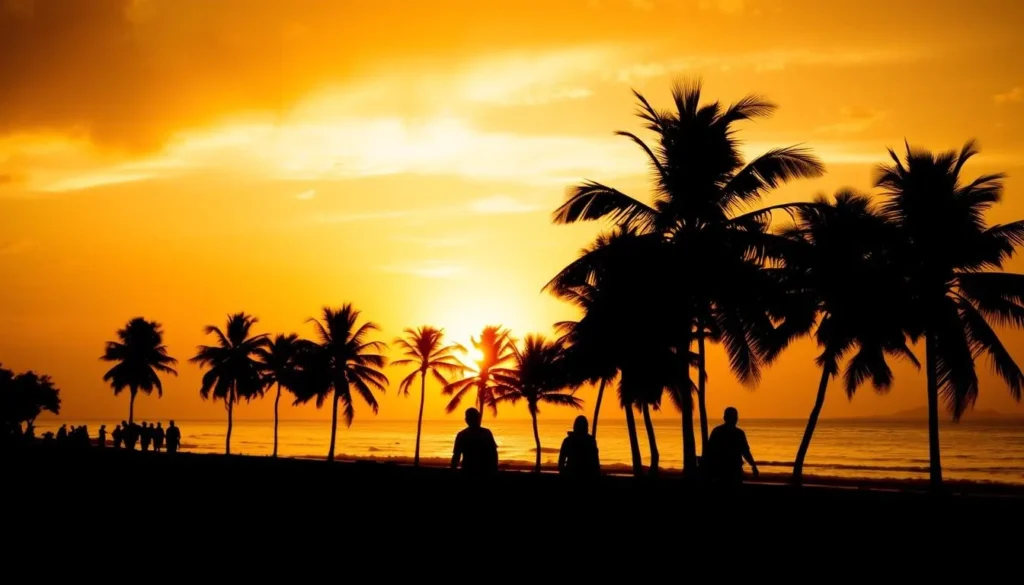
Frequently Asked Questions About Sierra Leone
Is Sierra Leone safe for tourists?
Sierra Leone has been peaceful since the end of the civil war in 2002. While it’s generally safe for tourists, take standard precautions against petty crime, use reputable transportation, and avoid traveling at night outside urban areas. The people are welcoming to visitors, and tourism is valued as an important economic contributor.
What is the best time of year to visit Sierra Leone?
The dry season (November to April) is the best time to visit Sierra Leone. Roads are more accessible, and outdoor activities aren’t interrupted by rain. January and February are the hottest months, while December offers pleasant temperatures. The rainy season (May to October) brings heavy downpours that can limit travel, especially to remote areas.
How do I get from Lungi Airport to Freetown?
Since Lungi Airport is separated from Freetown by the Sierra Leone River, you have several transfer options: water taxis (30-60 minutes, most popular), government ferry (slower but cheaper), or driving around the bay (3+ hours). Water taxis like Aberdeen Water Taxis offer the best balance of speed, comfort, and value. Arrange your transfer in advance if possible.
What vaccinations do I need for Sierra Leone?
Yellow fever vaccination is mandatory for entry into Sierra Leone. Other recommended vaccinations include hepatitis A and B, typhoid, tetanus, and meningitis. Malaria prevention is essential, so consult your doctor about appropriate antimalarial medication. Visit a travel health clinic 4-6 weeks before your trip for personalized advice.
Can I use credit cards in Sierra Leone?
Sierra Leone is primarily a cash-based society. While some upscale hotels and restaurants in Freetown may accept credit cards, you should plan to use cash for most transactions. Bring US dollars to exchange, as ATMs are limited and often unreliable. Exchange money at official exchange offices or through your hotel.
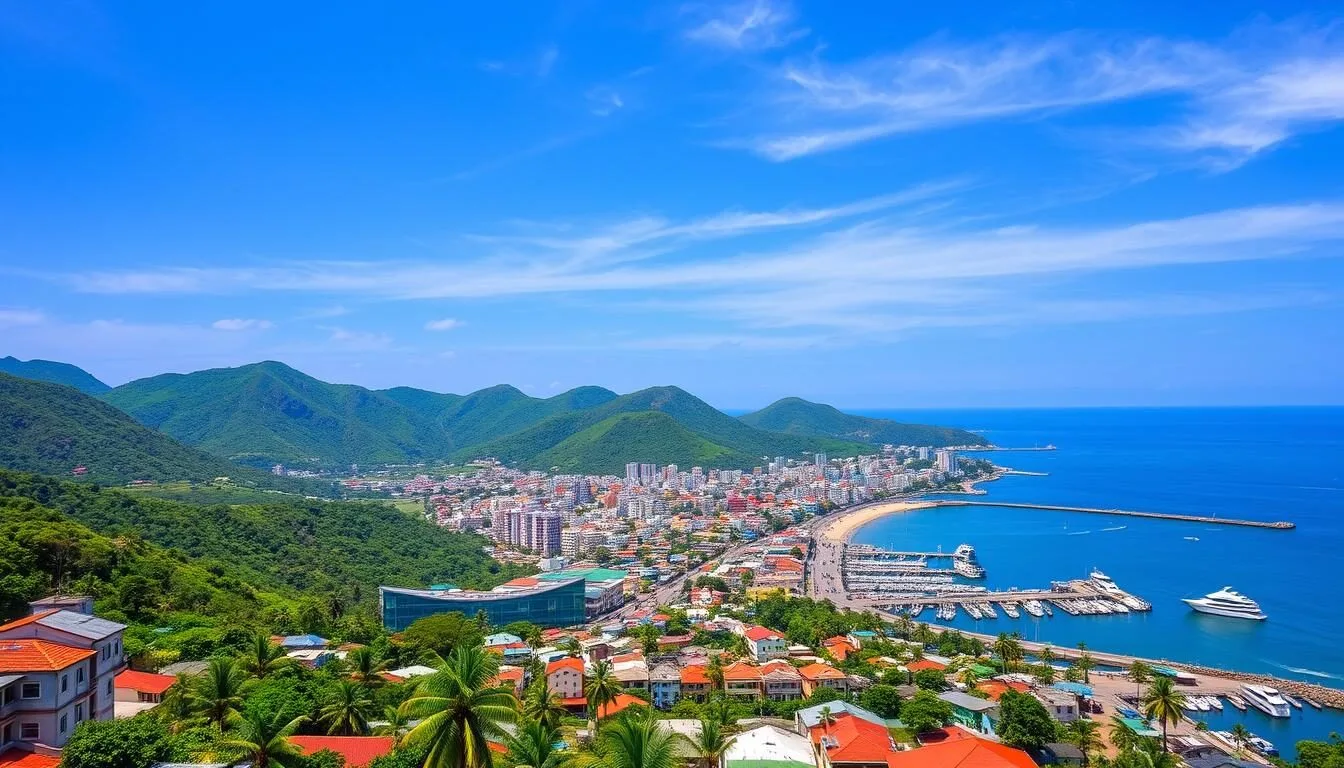
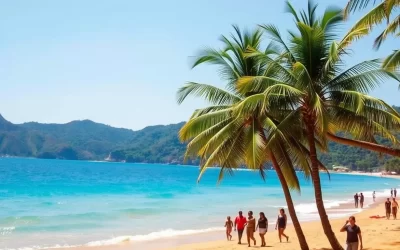
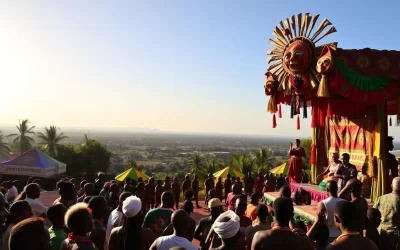

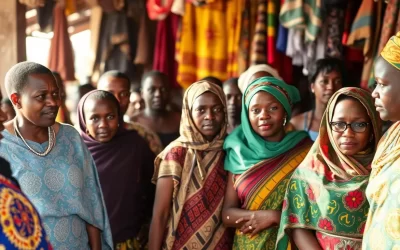
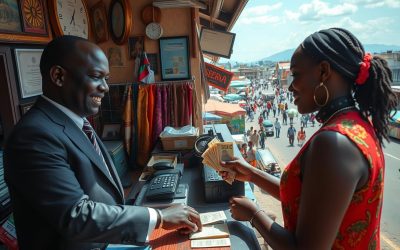
0 Comments